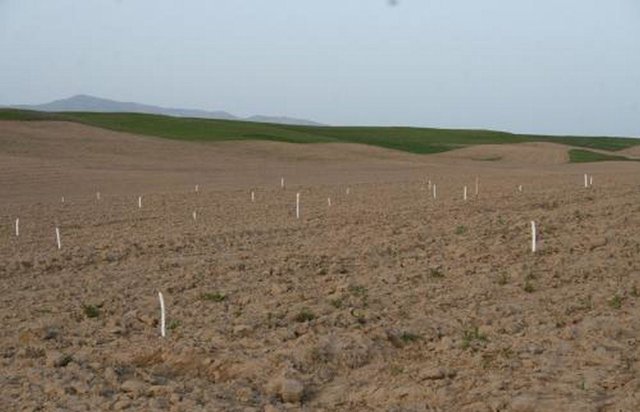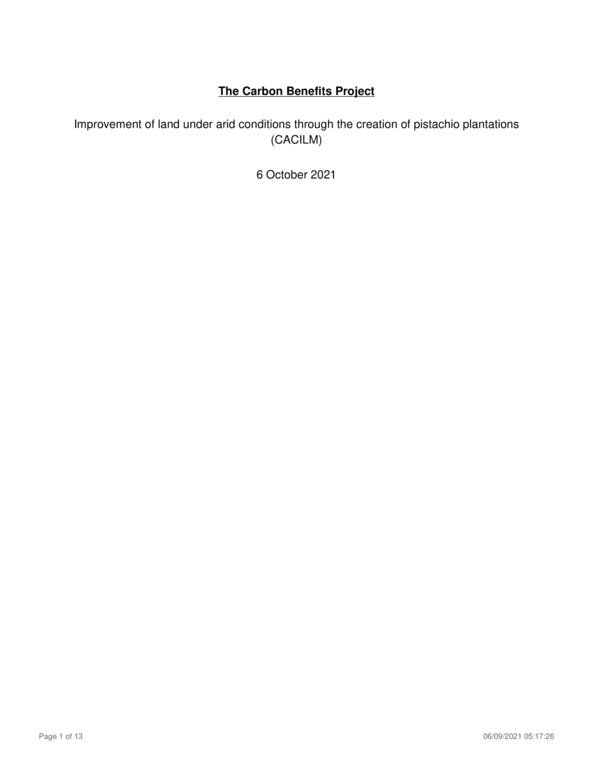Projet sur les Bénéfices du Carbone (CBP)
Module de synthèse du Projet sur les Bénéfices du Carbone (CBP)
Technologie : Improvement of land under arid conditions through the creation of pistachio plantations (CACILM) (Central Asian Countries Initiative for Land Resource Management (CACILM))- Création :
- Mise à jour :
- Compilateur : Eleanor Milne
- Rédacteur : –
- Examinateur : Tatenda Lemann
cbp_6145
État complet : 100%
1. Informations générales
2. Carbon Benefits Project (CBP) Assessment
Liens et modules
Réduire toutLiens

Улучшение земель в аридных условиях через создание фисташковых … [Ouzbékistan]
Создание плантаций фисташки на пологих склонах для повышения производительных функций земли, предотвращения деградации и восстановления ландшафтов предгорной аридной зоны
- Compilateur : Rustam Ibragimov
Modules
Aucun module trouvé


